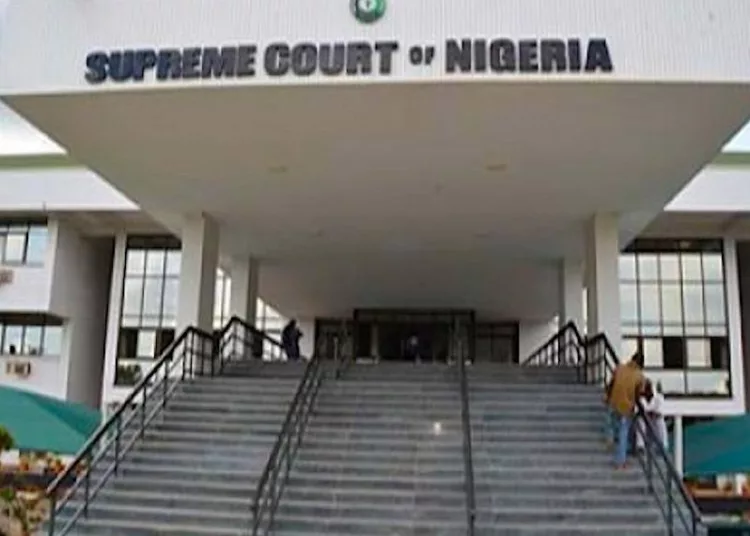The Supreme Court has set aside a garnishee order against the Central Bank of Nigeria (CBN), dismissing proceedings initiated by Inalegwu Frankline Ochife in a legal battle that spanned several years.
In its judgment in the appeal with suit number SC/CV/268/2021, Justice Habeeb Abiru held that the lower courts had erred in assessing the case.
The dispute originated from an October 10, 2018 judgment of the Federal High Court in Abuja, which awarded Ochife N50 million in damages against the Inspector General of Police, the Commissioner of Police (FCT), and the officer in charge of the Intelligence Response Team, Special Anti-Robbery Squad (SARS).
Seeking to enforce the judgment, Ochife initiated garnishee proceedings to attach funds from the judgment debtors’ accounts under the Treasury Single Account (TSA) held by the CBN.
On December 10, 2018, the Federal High Court issued a Garnishee Order Nisi directing the CBN to deduct N50 million from the judgment debtors’ alleged accounts.
The CBN, however, filed an affidavit to show cause, asserting that it did not hold any accounts in the judgment debtors’ names and was, therefore, unable to comply with the order.
Despite this, the Federal High Court made the Garnishee Order Absolute on January 21, 2019, prompting the CBN to appeal the decision.
The Court of Appeal, in its ruling on December 4, 2020, dismissed the CBN’s appeal, reasoning that since the judgment debtors were government agencies, their funds must be held under the TSA policy.
Relying on Section 124 of the Evidence Act, the appellate court took judicial notice of the TSA framework and upheld the garnishee proceedings.
Dissatisfied, the CBN took the matter to the Supreme Court, arguing that the proceedings were invalid due to the judgment creditors’ failure to obtain the consent of the Attorney General of the Federation (AGF), as required by Section 84 of the Sheriffs and Civil Process Act (SCPA).
The apex court ruled in favour of the CBN, determining that the inspector general of police, the commissioner of police (FCT), and the officer in charge of SARS are not ministries, departments, or agencies (MDAs) of the federal government and, therefore, do not fall under the TSA framework.
Justice Abiru, delivering the lead judgment, criticised the lower court’s decision as “perverse,” stating that it relied on irrelevant considerations and failed to assess the evidence properly.
The Supreme Court held that the first respondent failed to provide specific details of the accounts allegedly maintained by the judgment debtors at the CBN.
The Supreme Court set aside the Court of Appeal’s judgment, dismissed the garnishee proceedings, and discharged the CBN from any liability in the matter.
Each party was ordered to bear its own costs.
While the majority judgment refrained from directly ruling on Section 84’s applicability, it did not render the provision obsolete.




